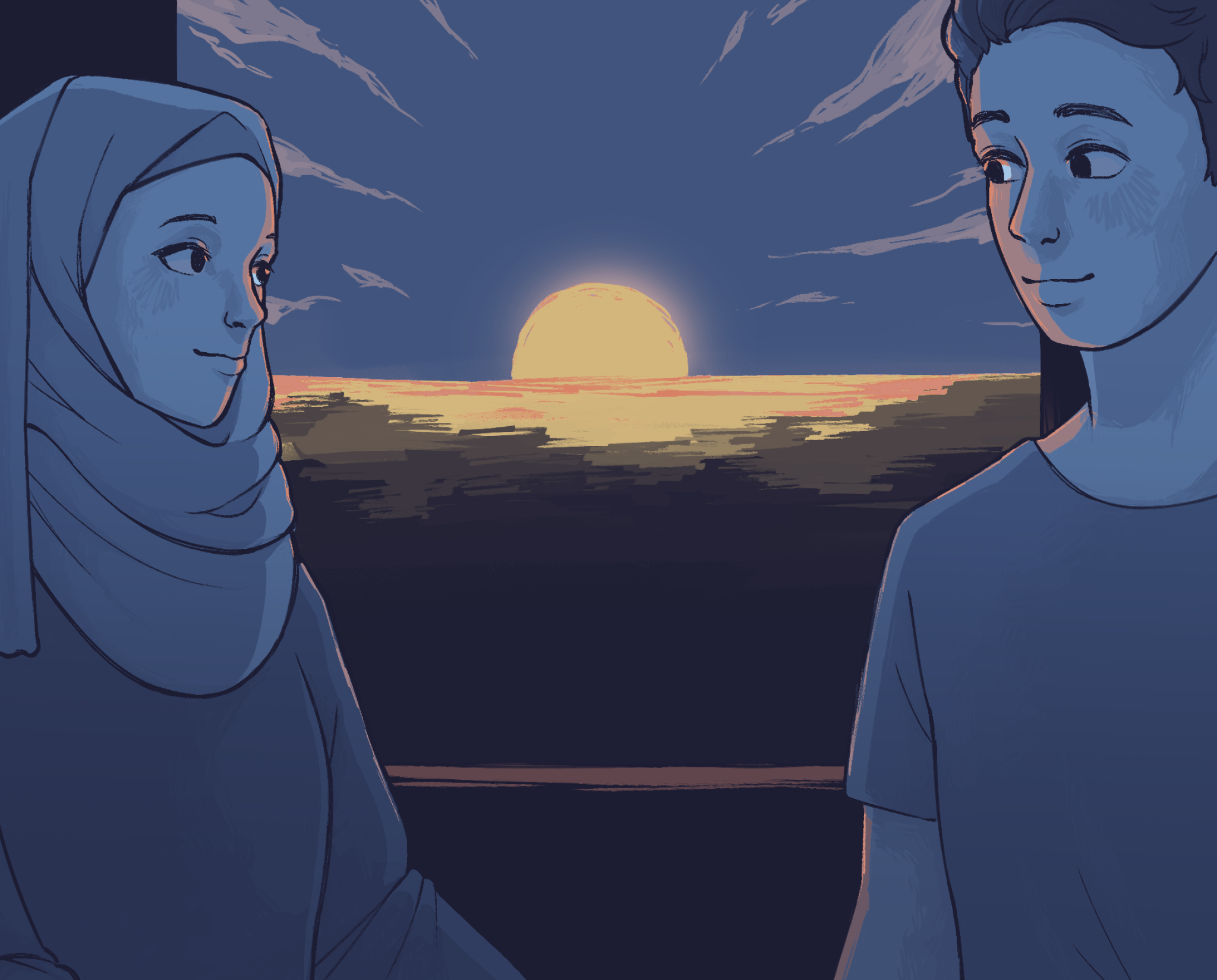“When you see someone starving on the street, it’s like getting a glimpse of what they have to go through on a daily basis,” said Academic Choice (AC) junior Afnan Saleh on fasting during Ramadan. For her, fasting leads to a better understanding of what people going hungry are experiencing. On May 2, Muslims celebrated Eid-al-Fitr, the last day of Ramadan, after a month that many Berkeley High School (BHS) students spent fasting.
During Ramadan, on April 21, members of the Muslim Student Association (MSA) gathered in a classroom to celebrate iftar, the daily meal where Muslims celebrating Ramadan break their daily fast. As per tradition, the club invited all janitorial staff, who work late hours at the school, to join them in eating a variety of foods catered by a local restaurant. Celebrations included discussing Islam and playing games like an Islam-themed Kahoot.
Ramadan celebrates the ninth month of the Islamic calendar. Muslims believe that during the month of Ramadan, the prophet Muhammad received the initial revelations of the Quran, the Islamic holy book. Ramadan is typically celebrated by fasting from sunrise to sunset, which includes abstaining from all food, drink, gossip, and explicit behaviors. Followers of Islam may also attempt to read the entire Quran over the course of the month and gather in the evenings, on top of completing daily prayers.
“And we only have to do it for a month,” Saleh said. “You’re getting this perspective and a humbling experience. And it’s not just that we fast, it’s also that we have to give to charity […] and do charity work and give a certain percentage of our income.”
Sophomore Hisham Chaurel, a student in the multilingual program, said that fasting during Ramadan teaches not to waste food.
Berkeley High School students fasting for Ramadan during the school day react in different ways.
Senior Rumeysa Yamac, president of the MSA, found that fasting during Ramadan made school easier for her.
“We would eat breakfast, which is called Suhur, at 5:30 am,” said Yamac. “I was able to manage my time better, and work and study before school, which was very helpful for my classes. It also helped spiritually.”
Yamac also celebrated Ramadan through prayer, potlucks, attending mosque, and breaking fast with her family and friends.
Many students observed that Ramadan allowed them to connect with family and community, while also noting it was a challenge to fast while keeping a full schedule.
“I have to focus on school and pull out 100% of my energy for each class,” said junior Iman Shaikh. “You also have lab and a bunch of homework as soon as you get out of school. Not being able to get my full sleep or eat food; it was very draining. But it was still very nice because [although I was] busy… I still got to see some family members.”
Saleh had a similar experience.
“It’s super difficult,” said Saleh. “Not just because you have to watch other people in school eat in front of you. It’s also because you get a lot of [school]work… It’s very difficult to do your homework after school, you just want to go home and sleep because you don’t have energy… On top of that you have this religious obligation that you have to follow.”
Chaurel said he sometimes fell asleep in classes and was late to first period because he was tired from fewer hours of sleep. That said, overall, he found fasting for Ramadan to be fairly manageable this year.
In addition to fasting, prayer is an important part of celebrating Ramadan. There are five daily prayers that are at the core of Islam, as well as a night prayer for Ramadan. Some people complete all prayers while others are unable to because of school and other commitments.
“You have to be content with the worship and your relationship with God,” said Chaurel. “Because without prayer, your fast will be meaningless.”
The MSA offers a space in the M building for students to complete their daily Dhuhr prayer, which takes place around 1:00 pm. On Fridays, the MSA hosts a Jama’ah which is a longer prayer where a BHS student leads a discussion about Islam and elaborates on a few sayings of the prophet Muhammad. Then, a 5-10 minute Dhuhr prayer is led for and by a group of students.
The end of Ramadan is celebrated with a three day celebration called Eid al-Fitr. On Eid al-Fitr, those celebrating the holiday dress in formal attire, and complete a prayer for Eid al-Fitr early in the morning. The MSA hosted a celebration where they gave out candy, played games, discussed their festivities, and voted for next year’s MSA leadership team.
“[Eid] is one of the biggest festivals in Islam,” Chaurel said. “It promotes us to give to charity and give food to the poor and needy. It really teaches us to be better human beings and it also marks the end of Ramadan.”
While Muslims hold similar Islamic beliefs, the experience of Ramadan is different for many.
“Some kids are celebrating it not with family,” said Shaikh. “Some kids don’t have the privilege that their parents know that they are Muslim or some kids just don’t have the time. Some kids are at school playing sports... [so they’re] also drained...”
Students who spoke to the Jacket discussed challenges, while also highlighting the community and connection felt with family and friends.
For many Muslim students at BHS, spirituality and joy is deeply intertwined in the celebration of Ramadan.





